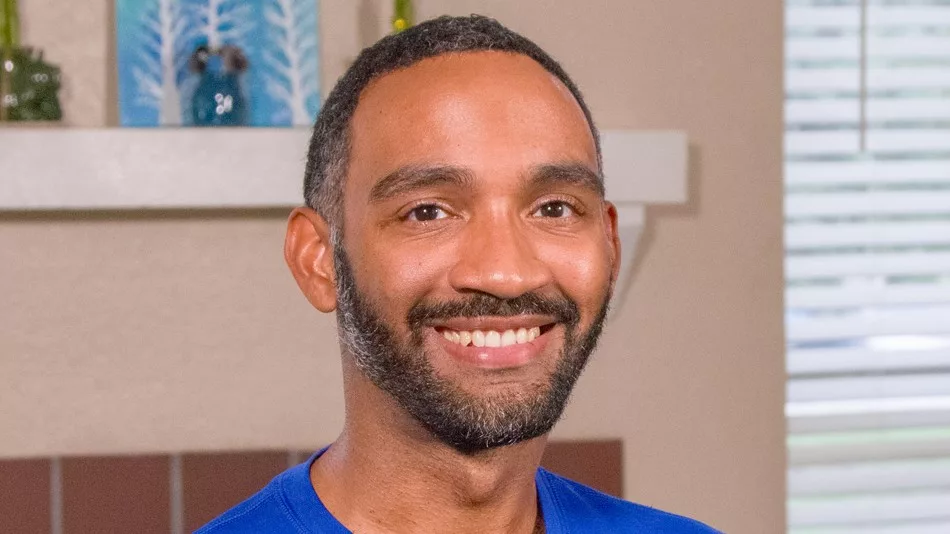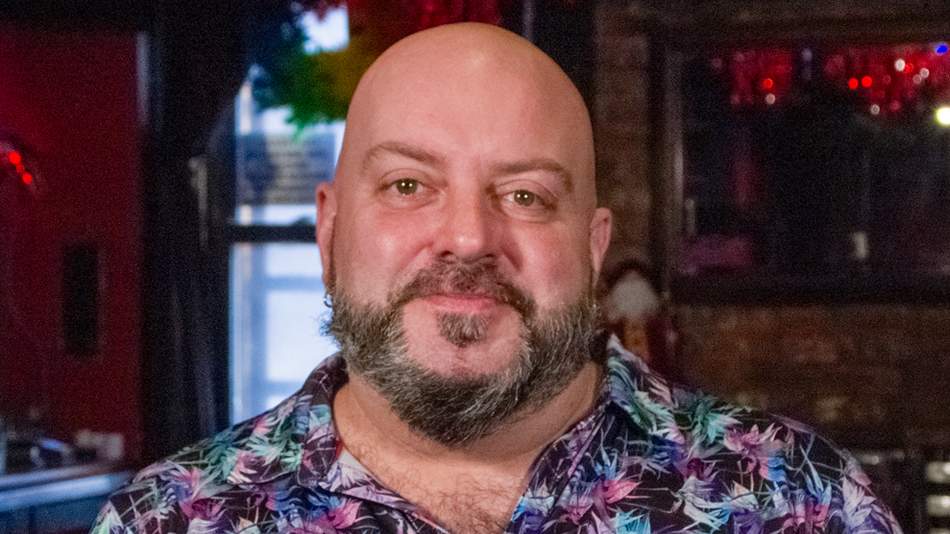I’m Stephen Mosher. I’m from Dallas, Texas.
When I was in college, I met the man that would eventually become my husband and during the first weeks when we’re together, sharing each other’s stories, we discovered that we had had identical experiences with the movie The Naked Civil Servant, which is the movie about the life of Quentin Crisp who some people consider to be the first gay activist.
He was in Texas and I was in Switzerland, but we both landed on a TV channel that was showing the movie The Naked Civil Servant, and it was very clear that it was about a gay man because he was unapologetically effete and flamboyant with pumpkin-colored hair and fuchsia clothing and painted fingernails and make-up. And so terrified that anyone in the family would find out that we’re watching this movie, we both turned off the lights in the room where we were and turned the volume on the television down and sat very, very close to the – in fact, Pat told me that he had to sit with his ear next to the speaker and watch the TV screen akimbo.
You know, when we – when we found out that we’d had the similar experiences it’s sort of, like, bonded us together. We became a Quentin Crisp household, we bought his books and we bought the movie The Naked Civil Servant. Flash forward, a few years later, we’re living in New York. I came here to do a book called The Sweater Book. It was a book of photography and it was intended to be an AIDS charity fundraiser and I was collecting celebrity models for the book.
And a friend of mine said, “You should get Quentin Crisp.”
And I said, “Well, I’d love to but I don’t know him.”
And he said, “Look him up in the phone book.” And I got out my White Pages. Sure as shooting, there it is – Quinn Crisp, address, phone number. So I dialed the number and – he had a very distinctive voice – it rang several times and finally, I hear, “Hello.”
And I said, “Mr. Crisp?
And he said, “No.”
And I said, “Have I called the home of Quentin Crisp?”
And the voice said, “You have.”
And I said, “Is Mr. Crisp home?”
And the voice said, “He is.”
And I said, “May I speak with him please?”
And the voice said, “You are.”
And I said, “Mr Crisp, my name is Steven Mosher and my friend said – he said that I should call you.”
And he says, “Why did he ask you to do that?”
And I said, “Well, I’m a photographer and I’m doing a book of photographs as an AIDS fundraiser -”
“I’ll do it.” Before I even got the sentence out.
So I said, “Do you have some time next week?” And he said yes.
I said, “Would you like to have dinner first?” And he said yes. And so we schedule the photo shoot.
On the day the photo shoot, we’re waiting for Quentin Crisp to arrive and I asked Pat, “Will you please go down to the street and look for him?” He was very old at this point and I’d offered to send a car for him but he decided to come by bus. He had a purple fedora and a fuchsia scarf and a move jacket and a full face of make-up. We sat down to dinner – a plain American dinner.
I had a fully stocked liquor cabinet and I said, “Would anyone like a Guinness?” because I’d heard that Quentin Crisp liked Guinness.
And he looked at me and he said, “Me!” And basically for the hour that was dinner, we three sat there and listened to him talk. It was just one fantastic story after another and it came time for the photo shoot, we came here into my living room. And he wouldn’t talk during the shoot. He didn’t want his lips to be moving in the pictures. He just posed and he wanted to hold his glass of Guinness in the picture. And the last two frames on the roll of film, I asked him if we could take some pictures of he and Pat. And it was – I don’t want to cry – it was during that moment that I got this ball of fire in my chest because Pat, as a child, had idolized this man – the first gay activist! And I saw that picture and I saw the way that they looked at each other and I thought there is – there’s a history here. There’s a mantle of activism that must be passed from generation to generation. Quentin Crisp crusaded to be who he was – an out and proud, flamboyant homosexual.
Pat and I were at the time crusading for AIDS, of fighting for it and finding a cure and helping those who needed it. But then our crusade grew greater. We wanted to crusade for equality and for marriage equality and for people, for young kids out on the streets of New York that would see two gay men walking down the street holding hands. And I really became aware from that photo shoot with that gay granddaddy, Quentin Crisp that, we are – we are all brothers. We are all one and we must care for the history of gay men and care for the gay kids that are coming up behind us. It was really one of the most precious moments of my life and I’m really, really grateful that it happened.








Share